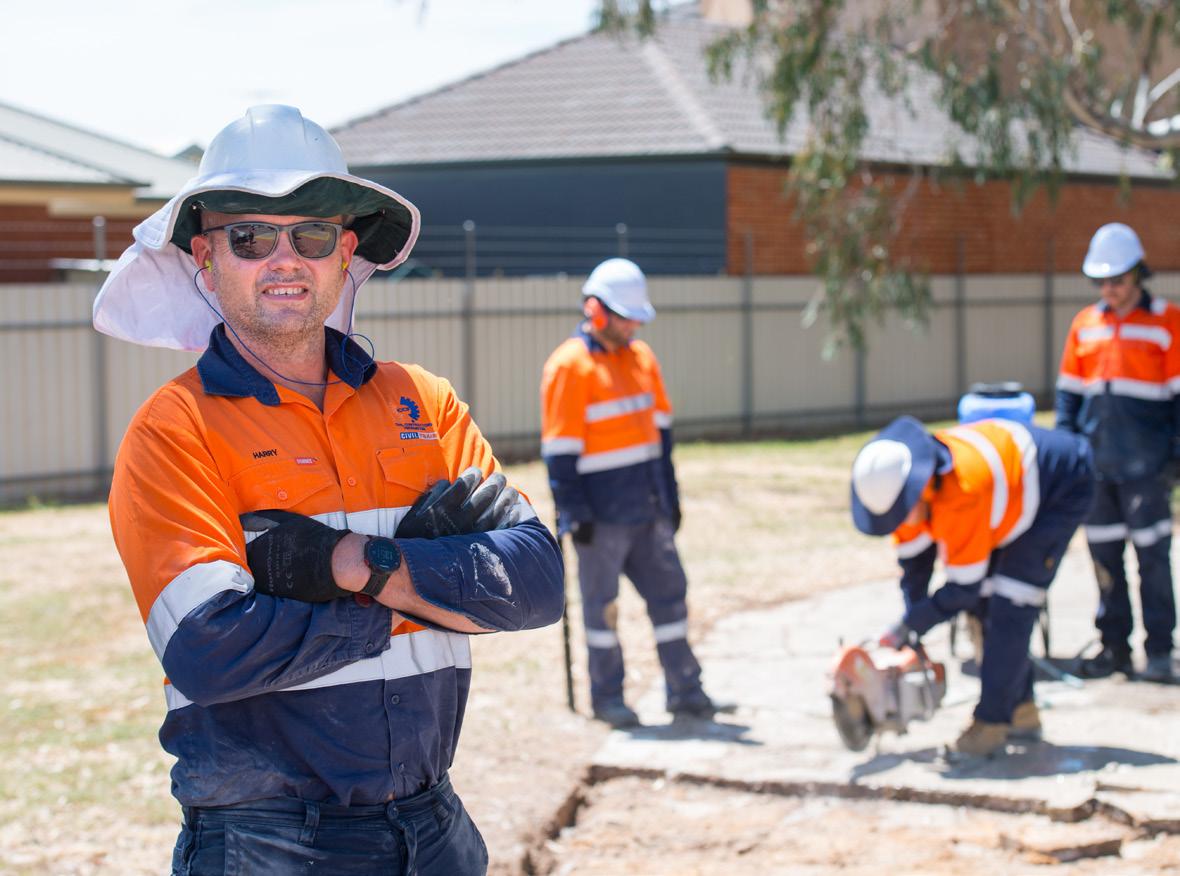
2 minute read
WORKING AWAY FROM HOME FINDING THE BALANCE TO MAKE IT WORK
Written by Matthew Blackborough, Civil Train SA
Civil Contractors Federation South Australia (CCF SA) operates three divisions of Civil Train – in South Australia, Western Australia, and the Northern Territory, to deliver quality training services and programs within each region. In practice, our trainers do not only work within their respective states and territories, but travel to Victoria, New South Wales, Queensland, Tasmania, and even to the United States. While this way of mobilising training staff is primarily aimed at fulfilling clients’ needs, it can also help to expose the staff to diverse cultural experiences and a broader perspective on life. Furthermore, it can provide opportunities (that may not occur otherwise) for them to connect with colleagues or peers in the industry.
For CCF SA, this sort of flexibility with delivering training, and dedication to supporting clients, are a testament to our organisation’s commitment to providing excellent training services. It also demonstrates the wide reach of our organisation.
Nowadays, it is increasingly common for trainers in the civil industry to sometimes work away from home. It simply means they undertake work-related travel or live away from their home for periods of time. Generally, accommodation and meals are often taken care of by the employer. For these trainers, such experiences could be both interesting and daunting. They enable individuals to explore new locations and experience different environments. For example, a civil construction industry trainer may need to travel to a remote location and work at different times and be compelled to cope with minimal amenities. While that may seem like a disadvantage, it can offer the trainer an opportunity to tackle such issues by engaging with the locals, which will in turn facilitate easier assimilation into that community.

Undoubtedly, one of the biggest disadvantages of working away from home is the separation from family and loved ones. That can make it difficult to maintain a work-life balance, especially over extended periods. Additionally, regular activities like going to the gym or attending a favourite class may not be possible. The lack of familiar routines and amenities can lead to a sense of isolation and/or disconnection. However, should you find yourself caught up in a similar work predicament, you can find ways to make the most of the opportunities that come with working away from home. Go for a walk, explore the new area on a bike, meet new people in the community, or try new restaurants. The absence of regular routines can also provide opportunities to read books, catch up on shows, pursue a new hobby or perhaps even revive an old one.
It is important to keep in mind that working away from home is not suitable for everyone, as family commitments and personal preferences may vary. However, if you choose to take on this way of work life, it is essential to focus on the benefits and find ways to make the most of the opportunities that come with it. The key is to maintain a positive attitude, focus on the opportunities that come with the job, and find ways to make the most of your experience. incredible country.
Good luck with finding your balance!
"I always ensure I have the essentials and easy-prep meals on hand, just in case. Instead of feeling down about being away, I choose to fully embrace the moment and immerse myself in the outdoors. I take walks that I wouldn't ordinarily do and even visit local gyms to stay active. Work travel has become my chance to explore, experience, and make the most of every journey."










